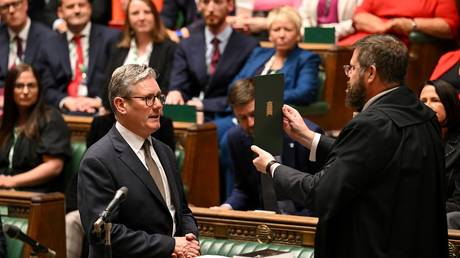Many political commentators in the UK have failed to grasp the true import of the Labour Party’s electoral victory last week. Some pundits see the party’s record majority as confirmation that politics in Britain has shifted back to the center – in contrast to the shift to the radical right that has characterized politics in most European countries in recent years. Nothing could be further from the truth.
Labour’s primary vote – 9.7 million but still a lowish 33.8% – increased only marginally, despite the complete collapse of the Conservative vote.

The most important aspect of last week’s election was the transfer of thousands of votes from the Conservative Party to Nigel Farage’s populist Reform Party – particularly in those “red wall” constituencies that Boris Johnson had single handedly captured from Labour at the 2019 election. Reform received some 4 million votes – 14% of the total votes cast. The UK electoral system meant, however, that Reform only won five seats – including, most importantly, Farage himself.
This significant voting shift did, however, unseat more than 200 Tory MPs, including a former prime minister and a number of cabinet members, and ensured the election of Labour candidates in droves. This does not, however, constitute a “shift to the center.” What actually occurred last week was predicted, prior to the election, by some conservative commentators who had become completely disenchanted with the Conservative Party, and had .
















